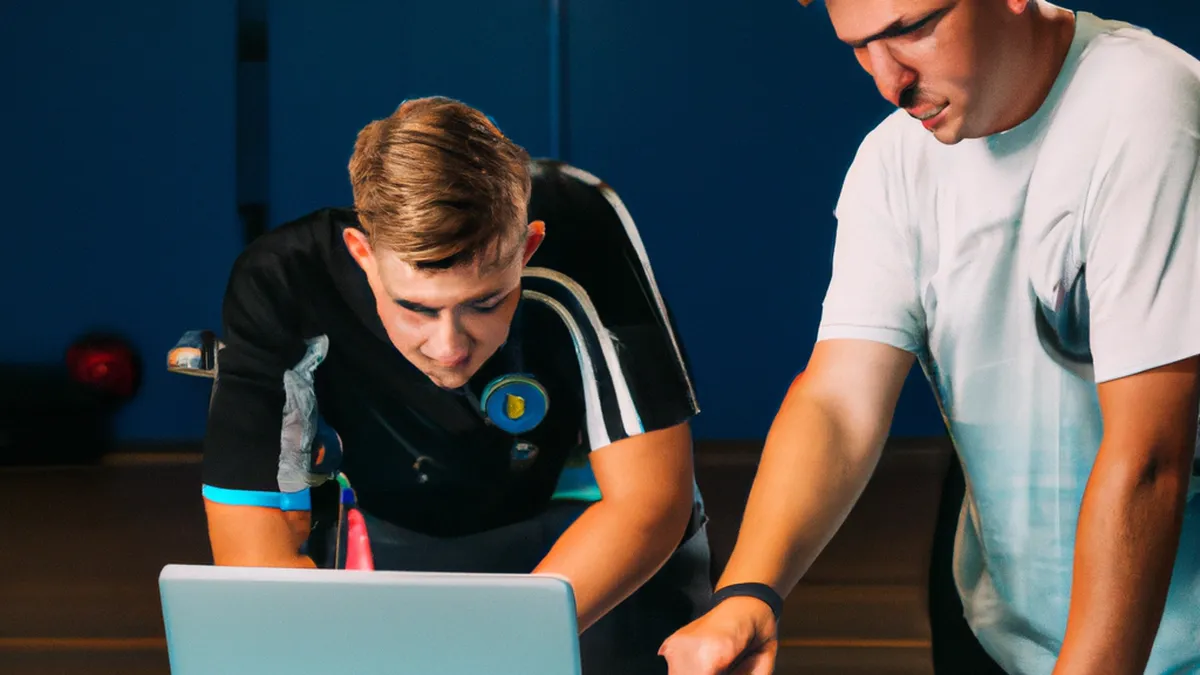Picture This: Athletes’ Guide to Mental Imagery
Visualization Techniques for Athletes Overcoming Health SetbacksAthletes often encounter health setbacks such as injuries and illnesses. These challenges can disrupt training and shake confidence. However, visualization techniques help athletes regain focus and motivation. This post explores effective visualization strategies for recovery and performance enhancement.
Understanding Visualization
Visualization involves creating mental images. Athletes use this technique to imagine their success. They picture themselves performing at their best, preparing mentally for competitions and recovery from injuries.Studies show that mental imagery activates similar brain areas as physical practice. Athletes can train their minds even when unable to train physically. Consequently, visualization speeds up recovery and improves performance once they return to the field.
Tips for Effective Visualization
As an Amazon Associate I earn from qualifying purchases.
Gear tip: consider hydration vest, compression sleeves, and desk cycle to support this topic.
Create a Clear Mental Image
Athletes should create vivid mental images. They can picture themselves performing their sport in detail. For example, a recovering runner should visualize every aspect of running, including footfalls and breathing rhythm.Including sensory details enhances imagery’s power. Athletes might imagine their heartbeat or the smell of fresh air. This engagement helps them connect more deeply with their goals.
Use Positive Affirmations
Athletes can incorporate positive affirmations into their practice. These statements boost self-confidence and motivation. They can repeat phrases like, “I am strong,” or “I will recover,” to combat negative thoughts.Athletes should speak affirmations with conviction and belief. Over time, these affirmations reshape their mindset, allowing them to approach recovery with optimism.
Visualize the Process, Not Just the Outcome
While athletes often focus on winning, they should visualize the process as well. They must imagine each step involved in recovery or training, such as physical therapy exercises.Visualizing the process builds a roadmap for success. This clarity reduces anxiety and enhances motivation, helping athletes understand what it takes to return to their sport.
Advice on Incorporating Visualization into Daily Routine
Set Aside Time for Visualization
Athletes should dedicate specific time for visualization, even 10 minutes a day. Choosing a quiet, comfortable space enhances effectiveness. Consistency is crucial; regular practice yields better results.Many athletes visualize before bed or after waking. This practice sets a positive tone for the day or aids restful sleep, reinforcing their commitment to recovery.
Combine Visualization with Physical Practice
While powerful, visualization requires pairing with physical practice. Athletes should not rely solely on mental imagery. Instead, they can incorporate visualization into workouts or rehabilitation sessions.For example, before an exercise, athletes can visualize the movement. This combination enhances muscle memory and boosts confidence in their physical abilities.
Seek Professional Guidance
Athletes may benefit from professional guidance. Sports psychologists offer personalized strategies and help refine visualization techniques. They can also address emotional challenges during recovery.Working with a professional provides support and encouragement. This guidance helps athletes stay on track, especially during difficult times.
Benefits of Visualization Techniques
Visualization techniques provide numerous benefits for athletes. First, they enhance mental resilience, helping athletes cope with setbacks and maintain positivity.Second, visualization improves focus, making athletes more aware of their goals. They can direct energy toward achieving them, minimizing distractions.Third, visualization accelerates healing. Studies indicate that mental imagery stimulates physical healing. Athletes who practice visualization may recover faster than those who do not, crucial in competitive sports.Lastly, visualization boosts confidence. As athletes visualize success, they reinforce belief in their abilities. Increased self-confidence leads to better performance once they return to competition.
Conclusion
Visualization techniques serve as powerful tools for athletes overcoming health setbacks. By creating clear mental images, using positive affirmations, and focusing on the process, athletes can enhance recovery. Setting aside time for practice, combining it with physical training, and seeking professional guidance further strengthen these techniques. Ultimately, visualization fosters mental resilience, focus, and confidence. Embrace these techniques and watch your performance soar.
Below are related products based on this post:
FAQ
What is visualization in the context of athletic training?
Visualization involves creating mental images to imagine success and prepare for competitions or recovery from injuries. This technique helps athletes mentally rehearse their performance, engaging similar brain areas as physical practice, which can enhance recovery and performance.
How can athletes effectively incorporate visualization into their routine?
Athletes can dedicate specific time for visualization, such as 10 minutes daily in a quiet space. Combining visualization with physical practice, like visualizing movements before exercises, can enhance muscle memory and confidence in their physical abilities.
What are the benefits of using visualization techniques?
Visualization techniques enhance mental resilience, improve focus, accelerate healing, and boost confidence. Athletes who practice visualization can cope better with setbacks, maintain awareness of their goals, recover faster, and reinforce their belief in their abilities.















Post Comment